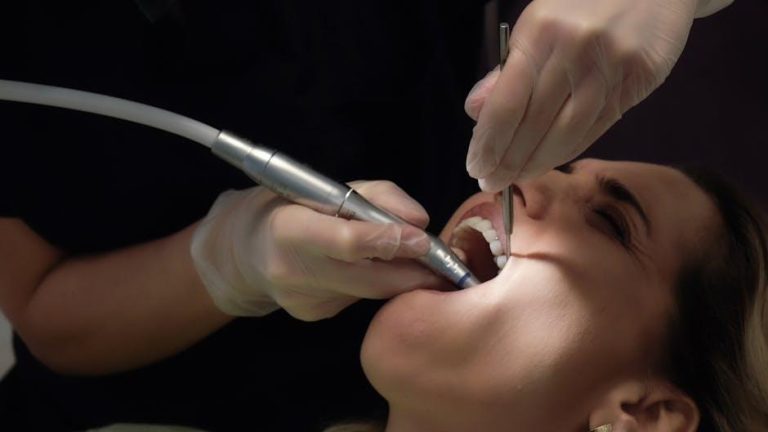
Suggested Plan Could Add Dental to Medicare – Dental Tribune US
Millions of Americans rely on Medicare for their healthcare needs as they age, yet most seniors face a glaring gap in their coverage—dental care. Recently, a suggested plan to integrate dental benefits into Medicare has garnered significant attention, promising to transform healthcare landscapes for older adults across the country. In this article, we’ll unpack what this proposed change entails, its potential benefits, and practical insights for those who stand to benefit the most.
Understanding the Current Medicare Landscape: What’s Missing?
Medicare is a federal health insurance program primarily for individuals aged 65 and older, as well as select younger populations with disabilities. However, standard Medicare, which includes Part A (hospital insurance) and Part B (medical insurance), traditionally excludes routine dental coverage. This means services like cleanings, fillings, dentures, or other dental procedures must often be paid out-of-pocket or covered by separate dental insurance plans.
Why is this a major issue?
- High out-of-pocket dental costs: Many seniors struggle to afford dental treatments without insurance, leading to neglected oral health.
- Poor dental health affects overall wellbeing: Oral infections can contribute to other health problems, including heart disease and diabetes.
- Lack of access to affordable care: Seniors with limited income often delay or forgo dental care altogether.
What the Suggested Plan Proposes
The new proposal, recently highlighted by Dental Tribune US and other health policy forums, suggests adding comprehensive dental coverage to the Medicare program. Key components include:
- Inclusion of preventive and restorative dental services: Cleanings, exams, fillings, crowns, and dentures would be covered.
- Integration with existing Medicare plans: Dental coverage would be an optional add-on or part of a Medicare Advantage package.
- Cost controls to make dental care affordable: Copayments and deductibles would be structured to protect low-income beneficiaries.
- Encouragement of regular dental visits: Preventive care emphasis to reduce expensive emergency treatments.
Comparison: Current Medicare vs. Proposed Medicare Dental Coverage
| Coverage Aspect | Current Medicare | Proposed Plan |
|---|---|---|
| Routine dental exams & cleanings | Not covered | Covered |
| Fillings & crowns | Not covered (out-of-pocket) | Covered with minimal copays |
| Dentures & prosthetics | Not covered | Covered |
| Emergency oral surgery | Partially covered under medical necessity | Fully covered under dental benefits |
| Cost to beneficiaries | High out-of-pocket expenses | Reduced copays & deductibles |
Benefits of Adding Dental Coverage to Medicare
Inclusion of dental benefits in Medicare could result in transformative outcomes for seniors and the healthcare system overall. Some of the standout advantages include:
- Improved Oral and General Health: Access to preventive dental care reduces the risk of infections and systemic health problems.
- Lower Healthcare Costs Over Time: Preventive dental services can help avoid costly emergency visits and hospitalizations.
- Financial Relief for Seniors: Reduces the financial burden associated with expensive out-of-pocket dental treatments.
- Greater Access to Care: Seniors in rural or underserved communities may gain improved access through Medicare-supported programs.
- Supports Overall Quality of Life: Better dental health can improve nutrition, speech, and social confidence.
Practical Tips for Seniors Preparing for This Change
While the proposal is still under consideration, seniors and caregivers can take proactive steps to prepare for potential dental benefits in Medicare.
Steps to Consider:
- Stay Informed: Follow up on policy updates from Medicare.gov and reliable health outlets like Dental Tribune US.
- Maintain Regular Dental Visits: Keep up with current dental care to avoid emergencies and demonstrate need.
- Review Dental Expense Tracking: Document current out-of-pocket costs to better understand potential savings once coverage is available.
- Discuss with Healthcare Providers: Talk to your dentist and primary care physician about oral health’s impact on general health.
- Consider Current Dental Insurance Plans: Weigh current coverage options against anticipated Medicare dental benefits to make informed decisions.
Case Studies: Impact of Dental Coverage on Senior Health
Several pilot programs across states that offer limited dental coverage for low-income seniors provide insight into what expanded Medicare dental benefits could achieve. Here are two illustrative examples:
| Location | Program Description | Results |
|---|---|---|
| California | State Medicaid expanded dental for seniors | 40% reduction in emergency dental visits; improved nutrition reports |
| Massachusetts | Free dental screenings and limited coverage through Medicare Advantage plans | Increased routine dental checkups by 30%; fewer hospital admissions for oral infections |
Conclusion
The suggested plan to add dental coverage to Medicare presents a promising solution to a critical gap affecting millions of seniors nationwide. By incorporating comprehensive dental benefits into Medicare, this plan could drive improved health outcomes, reduce costly emergency care, and bring financial relief to aging Americans. While official implementation is still pending, staying informed and preparing for this anticipated change can empower seniors and their families to make the most of enhanced dental healthcare coverage in the near future.
For ongoing updates and expert insight on Medicare and dental care policy, keep following Dental Tribune US.


